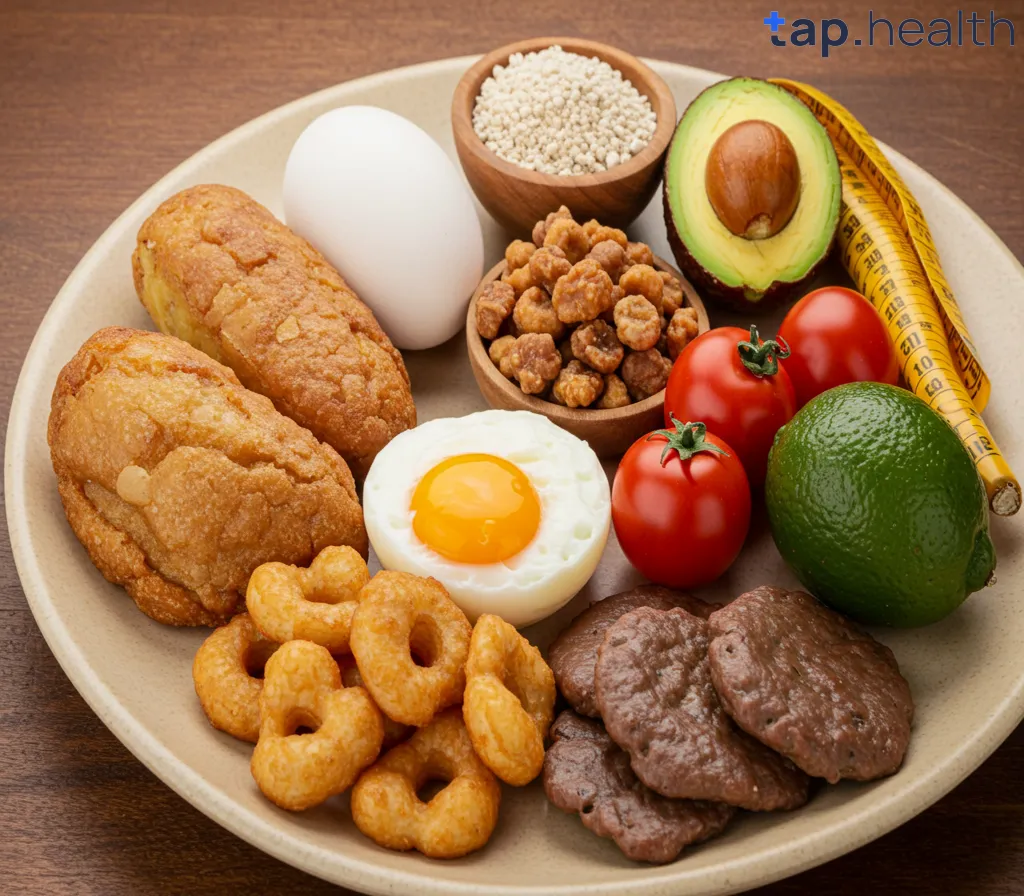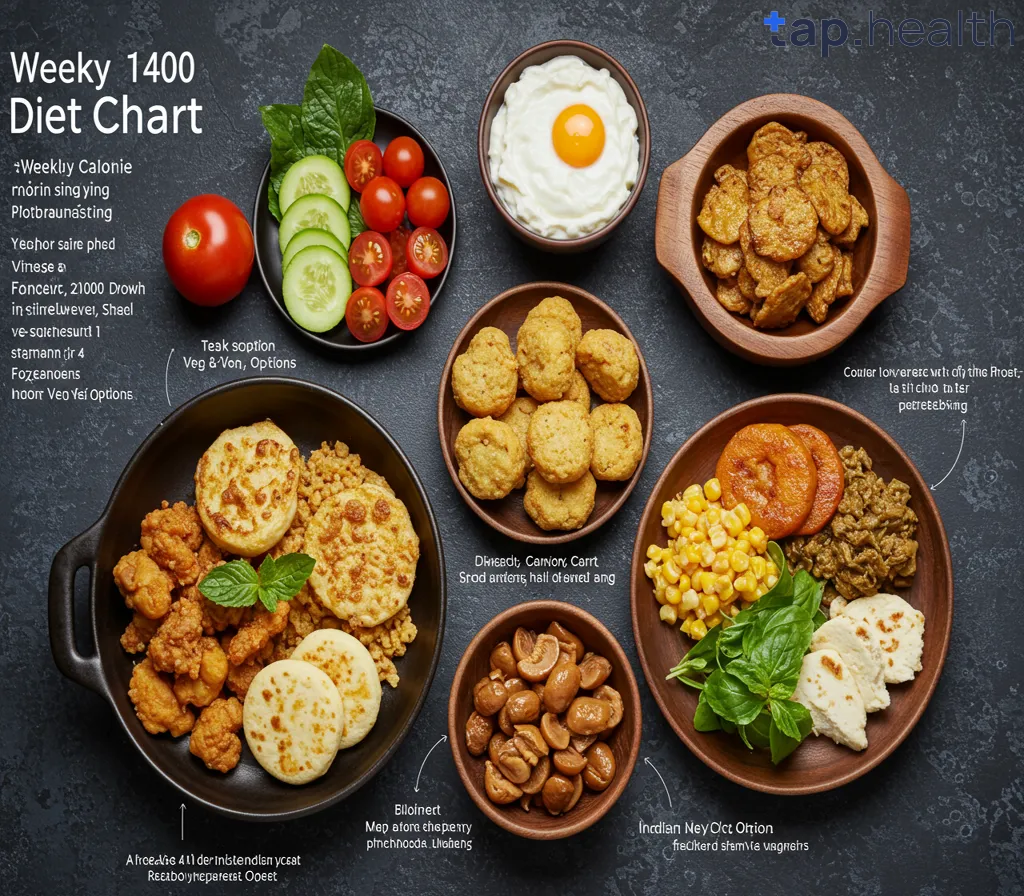Table of Contents
- Understanding Tachycardia: A Diabetic’s Guide
- Tachycardia and Diabetes: What’s the Connection?
- Managing Tachycardia with Diabetes: Expert Tips
- Fast Heart Rate & Diabetes: Recognizing the Risks
- Is Your Heart Racing? Diabetes and Tachycardia
- Frequently Asked Questions
- References
Living with diabetes requires careful management, and sometimes, unexpected health issues can arise. One such concern that often goes hand-in-hand with diabetes is tachycardia, a rapid heartbeat. This blog post delves into Understanding Tachycardia and its Connection to Diabetes Management, exploring the reasons why people with diabetes might experience this condition more frequently and what steps you can take to address it. We’ll cover potential causes, symptoms, and importantly, how you can work with your healthcare provider to effectively manage both your diabetes and tachycardia for a healthier life. Let’s get started!
Understanding Tachycardia: A Diabetic’s Guide
What is Tachycardia?
Experiencing a rapid heartbeat, or tachycardia, is a common concern, especially for individuals managing diabetes. In India, and across many tropical countries, the prevalence of cardiovascular complications amongst diabetics is alarmingly high. Over 60% of people with diabetes in India also have hypertension, a condition that significantly increases the risk of tachycardia. Understanding the connection between diabetes and tachycardia is crucial for effective health management. For a more in-depth look at the causal relationship, read our article: Does Diabetes Cause Tachycardia?
Diabetes and its Impact on Heart Rate
High blood sugar levels, a hallmark of uncontrolled diabetes, can directly affect your heart’s rhythm. This can manifest as palpitations, dizziness, or shortness of breath – all symptoms associated with tachycardia. Poorly managed blood glucose can damage nerves, including those regulating heart rate, leading to irregular heartbeats. Furthermore, diabetes often coexists with other cardiovascular risk factors like hypertension, further elevating the likelihood of tachycardia.
Managing Tachycardia in Diabetics
Effective management of diabetes is key to reducing the risk of tachycardia. This involves maintaining healthy blood sugar levels through balanced nutrition, regular exercise, and adherence to prescribed medication. Regular monitoring of blood pressure is also essential, as hypertension significantly contributes to cardiac complications. If you experience frequent or severe episodes of tachycardia, consult your physician immediately. Early diagnosis and intervention are critical in preventing more serious cardiovascular issues. Consider discussing lifestyle modifications and potential medication adjustments with your doctor to optimize your diabetes management and minimize the risk of tachycardia. Remember, proactive healthcare contributes significantly to a healthier life. As you age, managing diabetes presents unique challenges. Learn more about these challenges and potential solutions in our comprehensive guide: Managing Diabetes as You Age: Challenges and Solutions.
Tachycardia and Diabetes: What’s the Connection?
Diabetes significantly impacts cardiovascular health, and one concerning complication is tachycardia, a rapid heart rate. This connection is particularly relevant in hot and humid climates prevalent across many Indian and tropical countries, where pre-existing conditions like diabetes can be further exacerbated by environmental factors. The increased risk of cardiovascular issues in individuals with diabetes is well-documented. For example, nearly 30% of people with diabetes develop diabetic nephropathy, a form of kidney disease that further strains the cardiovascular system, potentially contributing to tachycardia. Understanding how diabetes affects blood flow is crucial in this context. You can learn more by reading our article on How Does Diabetes Affect Blood Flow?.
Understanding the Link
Several factors contribute to the increased risk of tachycardia in people with diabetes. High blood sugar levels damage blood vessels over time, affecting the heart’s ability to function efficiently. This damage can lead to irregularities in heart rhythm, manifesting as tachycardia. Additionally, diabetes often coexists with other conditions like hypertension and high cholesterol, both of which significantly increase the risk of heart complications, including rapid heart rates. Poorly controlled blood sugar can also directly influence the nervous system, impacting heart rate regulation. The link between diabetes and obesity further complicates matters, as obesity is a major risk factor for both conditions. For a deeper understanding of this connection, refer to our article on Understanding the Link Between Diabetes and Obesity.
Managing Tachycardia in Diabetes
Managing diabetes effectively is crucial in mitigating the risk of tachycardia. This includes maintaining healthy blood sugar levels through diet, regular exercise, and medication as prescribed by your doctor. Regular checkups with your physician are vital for early detection and management of any cardiovascular complications. In tropical climates, staying hydrated and avoiding strenuous activity during peak heat hours can help to reduce strain on the cardiovascular system. Remember to consult your doctor for personalized advice and treatment tailored to your specific needs and the local climate. Early intervention and proactive management can significantly reduce the risk of serious complications associated with both diabetes and tachycardia.
Managing Tachycardia with Diabetes: Expert Tips
Understanding the Link Between Diabetes and Tachycardia
Diabetes can significantly impact cardiovascular health, increasing the risk of conditions like tachycardia, a rapid heart rate. In India and other tropical countries, where diabetes prevalence is high, understanding this connection is crucial. High blood sugar levels can damage nerves and blood vessels, affecting heart function and leading to irregular heartbeats. Maintaining optimal blood glucose control is therefore paramount. For people with diabetes, blood pressure targets are generally below 140/90 mmHg, although some guidelines recommend aiming for below 130/80 mmHg for better heart health. This tighter control can help mitigate the risk of tachycardia and other cardiovascular complications.
Practical Steps for Managing Tachycardia
Managing tachycardia in individuals with diabetes requires a multi-pronged approach. Regular monitoring of blood glucose levels is vital, alongside adherence to prescribed medications, including insulin or oral hypoglycemics. A healthy lifestyle plays a key role: a balanced diet low in saturated fats and sodium, regular exercise (suited to individual fitness levels), and stress management techniques such as yoga or meditation are highly beneficial. Regular check-ups with your doctor and cardiologist are essential for early detection and management of any cardiac issues. Staying hydrated, especially in hot and humid climates prevalent in many Indian and tropical regions, is equally important. For more comprehensive tips on diabetes management, check out our guide: 10 Proven Tips to Effectively Manage Diabetes | Simple Guide.
Seeking Expert Help in India and Tropical Countries
If you experience persistent tachycardia or palpitations, consult a doctor immediately. Early intervention is key to preventing serious complications. Many hospitals and clinics across India and other tropical countries offer specialized diabetes and cardiology care. Don’t hesitate to seek professional guidance to develop a personalized management plan that addresses your specific needs and circumstances. Proactive management can significantly improve your quality of life and reduce the risk of serious heart-related problems. Learning 10 Proven Tips for Effective Diabetes Management can be a great first step towards better overall health.
Fast Heart Rate & Diabetes: Recognizing the Risks
Understanding Tachycardia in the Context of Diabetes
Diabetes significantly increases the risk of cardiovascular complications, including tachycardia, a condition characterized by a fast heart rate. This elevated heart rate can stem from various factors related to diabetes, such as nerve damage (autonomic neuropathy), poorly controlled blood sugar levels, and underlying heart conditions often associated with the disease. The impact is particularly pronounced in tropical and Indian climates, where pre-existing heart conditions might be exacerbated by heat and humidity.
The Dangers of Unmanaged Tachycardia for Diabetics
Ignoring tachycardia in individuals with diabetes can have serious consequences. Research highlights the increased risk of mortality, especially among smokers with diabetes. In fact, studies show that smokers with diabetes face twice the mortality rate from cardiovascular issues compared to non-smokers. This emphasizes the critical need for vigilant diabetes management, including regular monitoring of heart rate and blood pressure. Early detection and treatment of tachycardia are crucial to preventing life-threatening complications.
Practical Steps for Managing Tachycardia and Diabetes
For individuals in India and other tropical countries living with diabetes, maintaining a healthy lifestyle is paramount. This includes regular exercise, a balanced diet low in saturated fats and sugar, and strict adherence to prescribed medication. Regular check-ups with your doctor are essential for monitoring your blood sugar levels, blood pressure, and heart rate. Open communication with your healthcare provider is key to developing a personalized management plan that addresses your specific needs and risk factors. Don’t hesitate to seek medical attention if you experience persistent tachycardia or any other concerning symptoms. Early intervention can significantly improve your overall health and well-being. Understanding the link between diet and diabetes is also crucial; learn more about how Can Fast Food Cause Diabetes? to further improve your management strategy. Furthermore, proactive steps are vital, and you can find helpful guidance in Protect Your Heart from Diabetes: 5 Essential Steps.
Is Your Heart Racing? Diabetes and Tachycardia
Experiencing a rapid heartbeat, or tachycardia, can be alarming. For individuals with diabetes, this symptom warrants particular attention. A significant portion of the diabetic population, 61% of whom are aged between 20-64 years, according to the International Diabetes Federation, are at risk and may not be fully aware of the connection. This age group, prevalent across Indian and tropical countries, is often highly active, making early detection crucial.
Understanding the Link
Tachycardia, characterized by a heart rate exceeding 100 beats per minute, can be a complication of both type 1 and type 2 diabetes. High blood sugar levels damage nerves, including those controlling heart function, leading to irregular heartbeats. Poorly managed diabetes can also increase the risk of other cardiovascular issues that may manifest as tachycardia. Furthermore, dehydration, a common issue, especially in tropical climates, can exacerbate the condition.
What You Can Do
Regular monitoring of blood sugar levels is crucial. Maintaining optimal blood glucose control significantly reduces the risk of developing complications like tachycardia. Staying hydrated, particularly important in hot and humid Indian and tropical environments, is also essential. Consult your doctor if you experience persistent or unexplained tachycardia. Early intervention is key to preventing more serious health problems. Don’t hesitate to seek medical advice; your heart health is paramount, especially given the prevalence of diabetes within the 39% of the population aged 65+, a demographic often experiencing increased risk factors in these regions. Experiencing persistent fatigue alongside tachycardia could also be a sign of poorly managed diabetes. For more information on the link between diabetes and fatigue, read our article: Does Diabetes Make You Tired? – Tap Health. Understanding how diabetes affects the body is key to effective management, and it’s important to dispel common myths. To learn more about the transmission of diabetes, check out: Can Diabetes Be Transmitted? Understanding the Facts and Myths.
Frequently Asked Questions on Tachycardia & Diabetes
Q1. What is the connection between diabetes and tachycardia?
Diabetes significantly raises the risk of tachycardia (rapid heart rate), especially in warm climates. High blood sugar damages blood vessels and nerves, disrupting the heart’s rhythm.
Q2. How can I reduce my risk of tachycardia if I have diabetes?
Effective diabetes management is key. Maintain healthy blood sugar levels through diet, exercise, and medication. Regularly monitor your blood pressure and blood glucose.
Q3. Are there any additional risk factors for tachycardia in diabetics?
Yes, conditions like hypertension (high blood pressure) and high cholesterol, common among diabetics, worsen the risk of tachycardia.
Q4. What should I do if I experience persistent tachycardia?
Seek immediate medical attention. Persistent rapid heart rate requires prompt diagnosis and treatment to prevent serious cardiovascular complications.
Q5. How important is hydration, especially in hot climates?
Staying well-hydrated is crucial, particularly in hot climates like India, as dehydration can exacerbate the risk of tachycardia in individuals with diabetes.
References
- A Practical Guide to Integrated Type 2 Diabetes Care: https://www.hse.ie/eng/services/list/2/primarycare/east-coast-diabetes-service/management-of-type-2-diabetes/diabetes-and-pregnancy/icgp-guide-to-integrated-type-2.pdf
- Diabetes Mellitus: Understanding the Disease, Its Diagnosis, and Management Strategies in Present Scenario: https://www.ajol.info/index.php/ajbr/article/view/283152/266731




